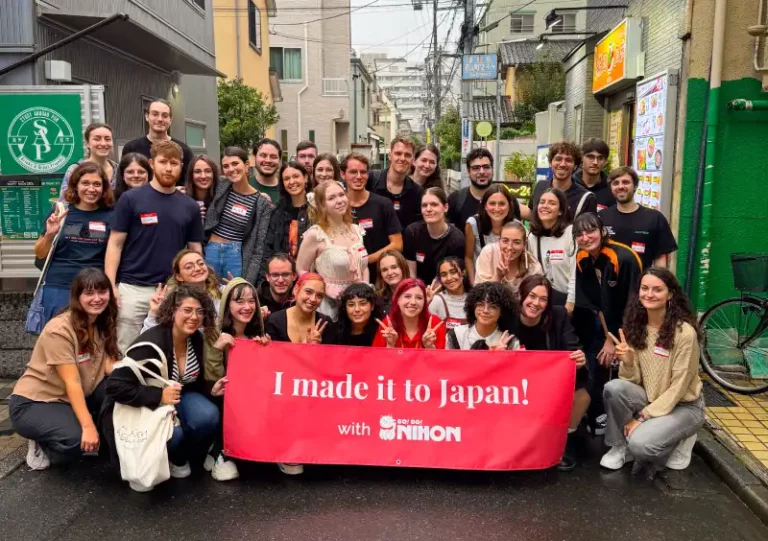
Studying Abroad in Japan
Planning of studying abroad in Japan? Complete guide for foreign students. Find study abroad programs, student visa, costs, housing, and school in Japan.
Home • Studying Abroad in Japan • Working in Japan for International Students
Many international students studying in Japan pursue work opportunities, including part-time work during their studies and full-time careers after graduation. This article provides essential information on working in Japan for international students, including eligibility, finding part-time employment, visa requirements, and salary considerations.

This guide will help you navigate part-time jobs and post-graduation work options in Japan.
In this article, you will discover:
Continue reading to ensure you don’t miss this important information.
International students in Japan can work part-time while pursuing their studies, if they meet specific eligibility requirements.
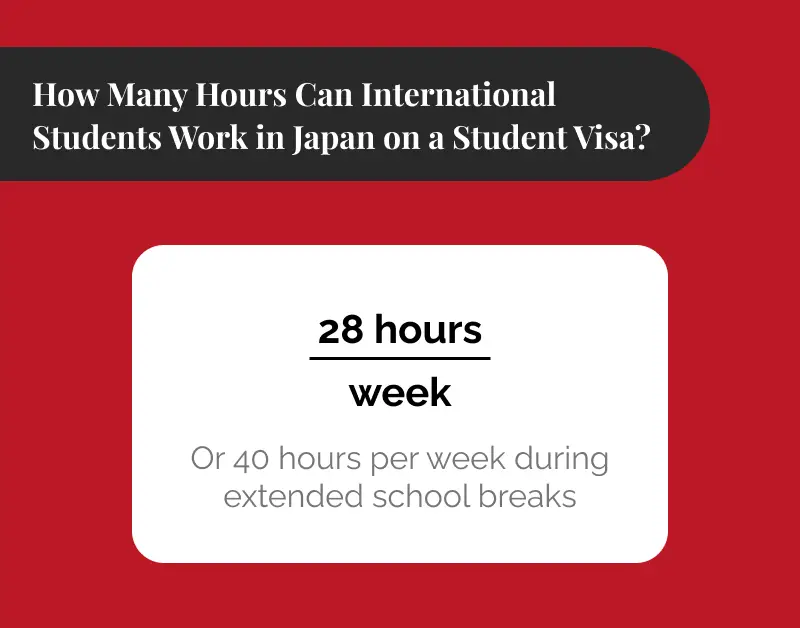
Your student visa allows you to work up to 28 hours per week during academic terms. Up to 40 hours per week during extended school breaks.
This flexibility supports you financially, provides valuable work experience, and improves your Japanese language skills.
You can explore part-time jobs in areas such as:
DID YOU KNOW?
Studying should remain your top priority. Ignoring visa regulations, such as exceeding work hours, can put your residency status at risk. Always follow the rules to protect your stay in Japan.
Working conditions in Japan for international students are designed to balance work and study effectively. International students cannot work in adult industries, such as:
Disobeying these regulations can result in immediate deportation or a substantial fine.
DID YOU KNOW?
Understanding these guidelines and planning effectively will help you make the most of your time in Japan while complying with Japanese student visa regulations.
Yes, you can do freelance work in Japan while on a student visa!
Tax regulations vary based on the duration of your residence in Japan and any tax treaties between Japan and your home country, so consulting with a qualified accountant or lawyer is strongly recommended.
Have you ever wondered what it’s like to work and study in Japan? Watch Andrea, an Italian student at the Intercultural Institute of Japan, as he juggles his studies with a part-time chef job at Pascucci. Get a glimpse into his daily life, workload, and how he landed the job. This could be you if you decide to study with us in Japan!
Now that you are aware of the ability to work in Japan with a student visa and its limitations, how do you apply for a part-time work permit?
If you’ve just arrived in Japan with a student visa, you can apply for a Japanese part-time work permit at any major airport by presenting the completed form called “Application for Permission to Engage in Activity Other than that Permitted Under the Status of Residence Previously Granted”.

After arriving in japan, take the completed form to your local immigration office. This can take longer to process depending on how busy the immigration office is.
It is recommended that you apply for the work permit at the airport upon arrival, even if you are unsure whether you intend to work.
Go! Go! Nihon students will be provided with the form to complete and present to immigration when their passports are checked upon arrival.”
Once the application is processed, you will receive your Residence Card (Zairyu Card) and a stamp in your passport, which grants permission to work part-time.

You have several ways to find a part-time job opportunities in Japan.
These methods, ranging from online resources to community support, can assist students in securing part-time work and preparing for future careers.
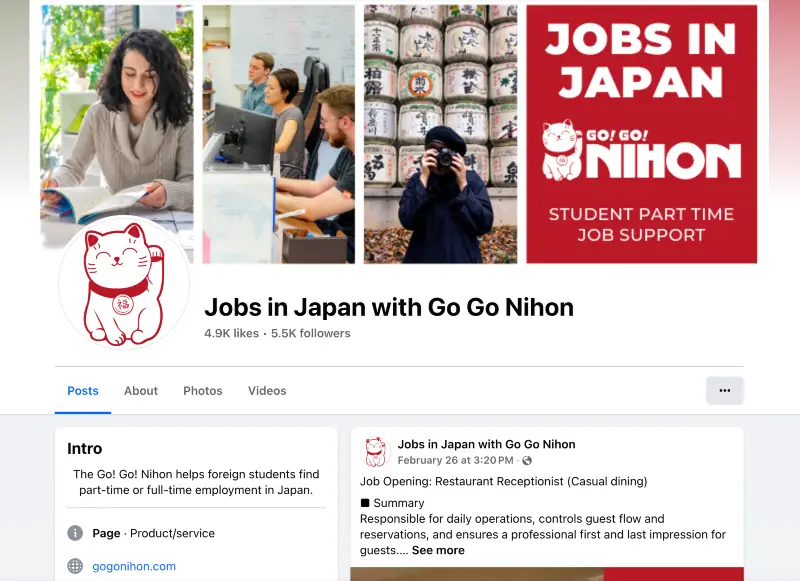

As of 2024, the average minimum wage in Japan is 1,054 yen per hour. While this can vary by job and location, it is a good estimate of potential earnings.
Unfortunately, part-time work alone isn’t enough to cover your full tuition and living expenses in Japan. Consider it as a supplemental income to assist with daily costs such as food or transportation.
For the first three to six months, you should focus on familiarizing yourself with school life and improving your Japanese language skills. Also, some schools may limit your work options during this period. Prioritizing your studies will lead to improved opportunities in the future.

If you’re looking for a part-time work in Japan on a student visa, language requirements will depend on the type of job you choose.
For roles in retail, restaurants, or hospitality that involve interacting with Japanese customers, you’ll typically need basic to intermediate Japanese (JLPT N4 or N3). Even if you’re not fluent, showing a willingness to learn and being polite can make a strong impression.
Jobs like teaching English or working in international environments are great options, as they often require little or no Japanese.
DID YOU KNOW?
Strong Japanese language skills will lead to a successful and fulfilling work experience in Japan.

Foreign students in Japan may face challenges when landing a part-time job. Here’s the list of challenges you may find:
Finding a part-time job in Japan as an international student can be challenging, especially if you are still learning Japanese. Many roles require at least conversational Japanese (JLPT N4 or N3).
Adapting to cultural differences like strict punctuality and formal workplace norms also takes effort. The visa restrictions and limited job opportunities in rural areas add to the hurdles, particularly when most roles are in food service, retail, or teaching English.
DID YOU KNOW?
Despite these challenges, prioritizing your studies, networking, and carefully selecting your school’s location can open up valuable opportunities to gain work experience in Japan.
Yes, there are a variety of career opportunities available to you, depending on your skills, interests, and Japanese language proficiency.
To work part-time, you must apply for a work permit. With a work permit, students may work up to 28 hours per week, but studying must remain the top priority.
Ignoring visa regulations, such as exceeding work hours, can put your residency status at risk. Always follow the rules to protect your stay in Japan.
Japan’s work visa system is flexible, with various visa types tied to industries rather than specific employers.
This means you can work in Japan in roles like:
Japanese companies generally require a JLPT N2 level or higher for full-time employment. But with the right skills, you can find opportunities at well-known companies such as Rakuten, PayPay, Ikea Japan, and Google.
Now that you know it is possible to work and have a career in Japan after graduation, the next question is whether you can change your visa from a student visa to a working visa.
Yes, you can transition from a Japanese student visa to a Japanese working visa. However, applying for a working visa in Japan is more complicated than applying for a Japanese student visa because of the different set of requirements.
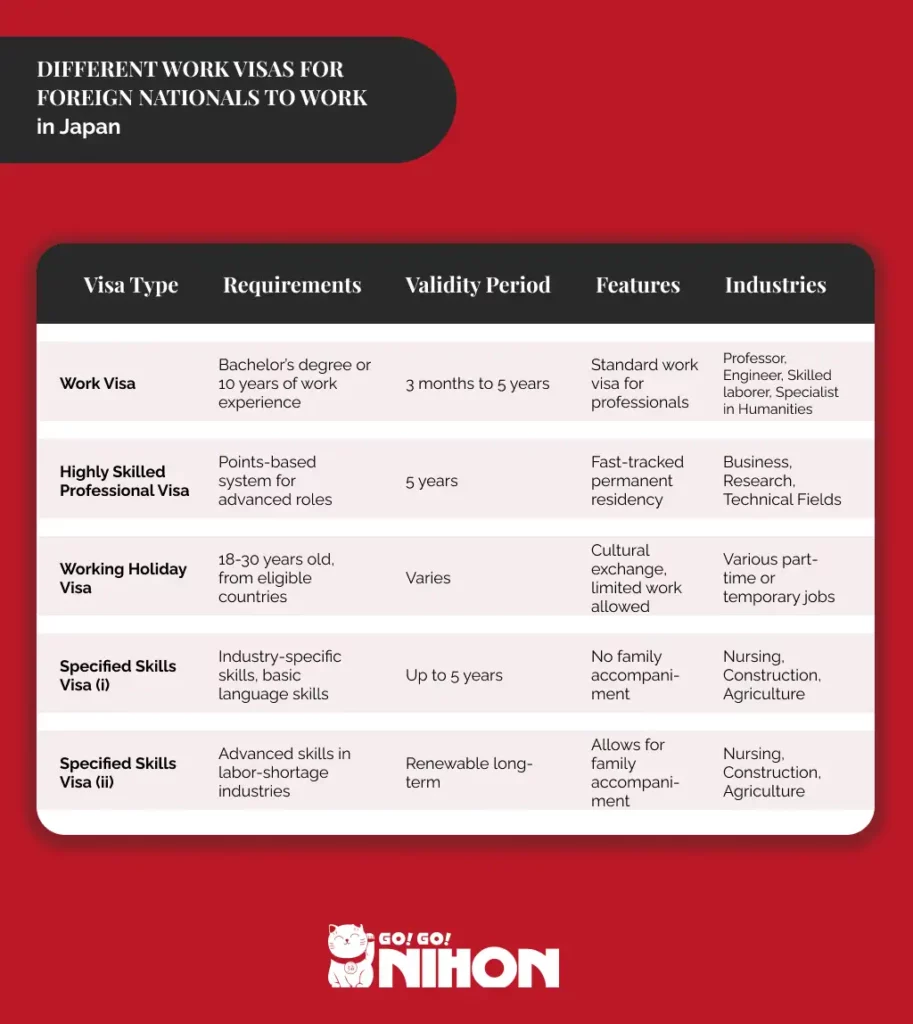
Japan offers various types of work visas tailored to different industries and employment needs, with Japanese language proficiency often playing an important role in securing and maintaining employment.
The standard Work Visa requires a bachelor’s degree or 10 years of specialized experience in the field you wish to work in Japan. Its duration ranges from 3 months to 5 years and is tailored for:
Another work visa, the Highly Skilled Professional Visa, uses a points-based system for advanced roles in:
This visa offers a five-year validity period and fast-tracked permanent residency.
The Working Holiday Visa is available for travelers from eligible countries aged 18-30. This is primarily intended for cultural exchange rather than long-term work.
And lastly, the Specified Skills Visa focuses on labor-shortage industries like nursing, construction, and agriculture.
There are two types of Specified Skills Visa:

While it is technically possible to work in Japan without a university degree, it is very challenging to do so. Most jobs will require at least a bachelor’s degree to secure a work visa and employment, especially in professional roles.
For some specialized roles, they may consider 10 years of experience in the field as an alternative to a degree.
However, there are steps you can take to work in Japan without a university degree.
If you do not have a university degree but wish to work in Japan, you can explore the following options:
Start by enrolling in a Japanese language school to build your proficiency in Japanese (typically JLPT N2). This is also essential for further education or work opportunities in Japan.
Some of our partner schools even offer special courses for those without 12 years of formal education. A great step toward pursuing a degree or vocational training in Japan.
Japanese universities and vocational schools offer paths to earn qualifications that are recognized by Japanese employers.
For vocational schools, attending a language school for six months or achieving JLPT N2 level is often enough for admission.
If you prefer studying in English, universities in Japan like Ritsumeikan Asia Pacific University offer degree programs taught in English alongside Japanese language learning.
You can also explore the Specified Skills Visa, which allows you to work in Japan without a degree in 14 industries. This visa requires passing exams in Japanese language and job-specific skills or completing a three-year technical program in Japan.
DID YOU KNOW?
With dedication and effort, your dream of working in Japan is absolutely achievable. Start with language learning, education, or skill-building, and the opportunities will follow
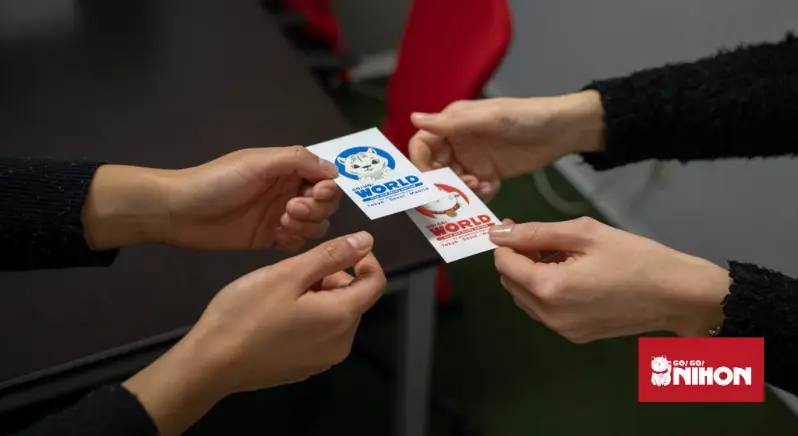
Now that you understand your options for finding both part-time and full-time jobs in Japan, it is important to understand Japanese work culture.
This is important if you want to grow in a Japanese workplace and to build strong relationships with your colleagues.
DID YOU KNOW?
The Japanese work culture is deeply rooted in traditions, values, and social norms. Being open-minded, respectful, and willing to learn will go a long way.
As an international student in Japan, you can work part-time on a student visa. This experience of working in Japan for international students gives you the chance to support yourself financially, gain work experience, and improve your Japanese skills.
To do so, you will need to apply for a work permit. Remember that your studies should always be your priority. Failing to comply with the restrictions of your student visa work permit can have serious consequences for your residency status in Japan.
If you’re aiming for a full-time career in Japan, proper planning can help you transition from a student visa to a work visa post-graduation.
Career options range from IT and teaching to business and marketing, with different work visas tailored to various industries.
It is also important for you to understand the cultural nuances in Japanese workplaces to build strong relationships with your colleagues.
We understand that there are many things to consider when studying abroad in Japan. Do not hesitate to talk to our student coordinators for a free consultation today to receive valuable guidance that could shape your future in Japan!

Planning of studying abroad in Japan? Complete guide for foreign students. Find study abroad programs, student visa, costs, housing, and school in Japan.

Learn Study abroad programs in Japan! Find programs for all interests & durations. Explore language schools, universities & get help applying free of charge.

Essential guide on working in Japan for international students. Information on eligibility, finding part-time jobs, visa requirements and rules, and salary.
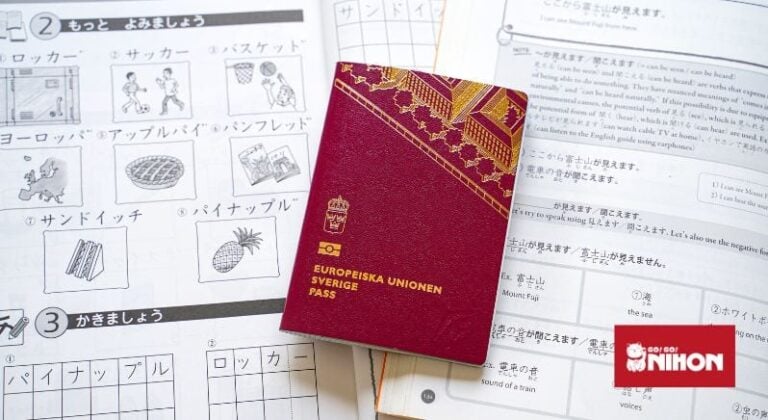
Your complete Japan student visa guide. Learn about requirements, deadlines, & working part-time. Go! Go! Nihon simplifies your application.

Looking for the best places in Japan for studying abroad? Get insights into cities, costs, and more. Begin your study abroad journey.

This guide details how to study abroad in Japan for foreign students, including processes, visas, costs, top destinations, and expert tips. Discover more.

This guide details how to study abroad in Japan for foreign students, including processes, visas, costs, top destinations, and expert tips. Discover more.
🎌 Join our next Webinar!
Learn Japanese in Japan with Go! Go! Nihon: Info Session and Q&A